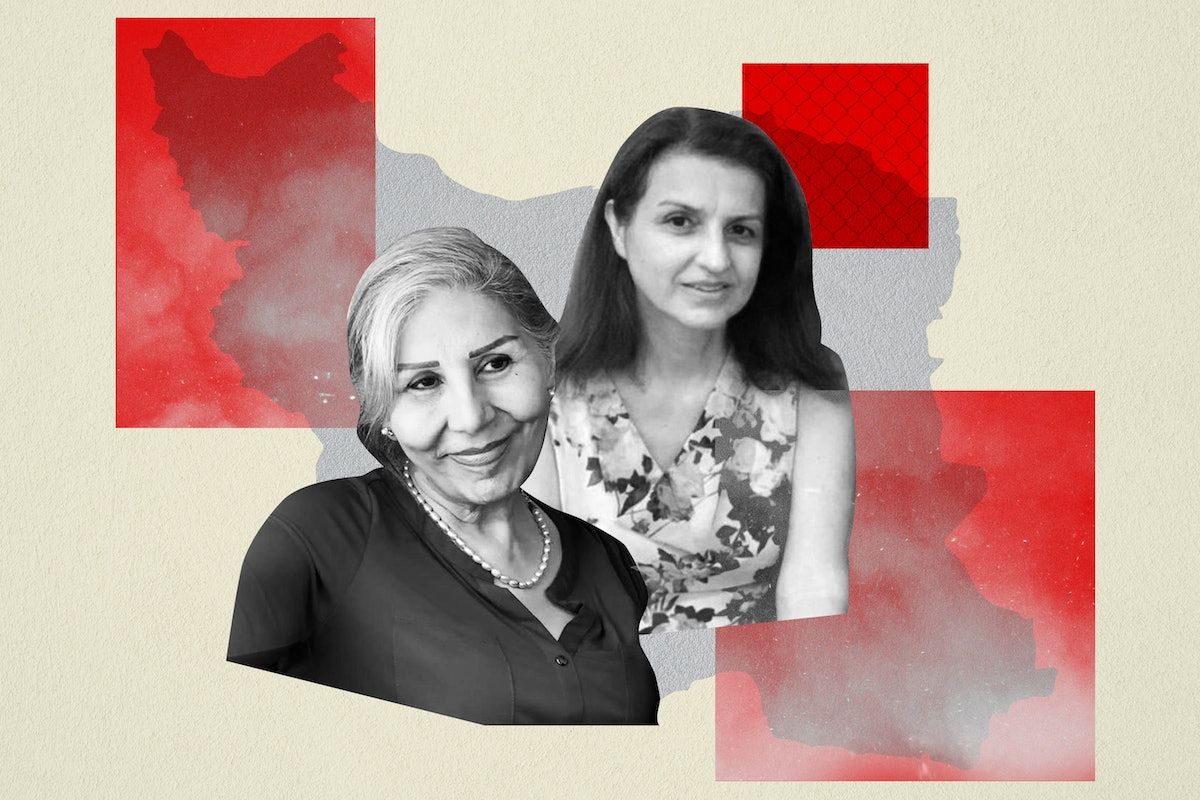- Last June, Baháʼís launched the #OurStoryIsOne campaign, marking the 40th anniversary of the murders of 10 innocent Baháʼí women at the hands of the Iranian government.
- #OurStoryIsOne recognizes the long struggle for equality lived by women of all faiths in Iran.
- Since the #OurStoryIsOne event held last June in St. John's, the Iranian government has intensified its persecution - jailing more Baháʼís, seizing their properties, imposing exorbitant fines, denying them burial rights, denying them higher education, and propagating official hate speech against the community.
- The Baháʼís of St. John's will host another Our Story Is One event at 7:30 p.m. Friday, Feb. 23, at the Landing, Room 3015, Memorial University Centre, 1 Arctic Avenue. The event will include poetry, songs, prose, art and discussions about human rights in Iran.
- Refreshments will be served. Free parking is available in the adjacent parking garage. Map.

Mahvash Sabet has been "disqualified" for most of her life.
While working as a school principal at the age of 26, shortly after the Iranian revolution, she was informed that she had been "disqualified" from her job.
Just after that, she was "disqualified" from continuing her studies in university.
As a Baháʼí living in Iran, she was part of an entire community that was "disqualified" from basic human rights such as freedom of expression and belief.
In the years following the revolution, the regime murdered 250 Baháʼís, including all nine members of its national governing body. All the community's assets were seized, as were the properties of many individual Baháʼí families. The regime barred Baháʼís from enrolling in college or holding government jobs.
"Suddenly, our ancestral homeland was taken from us, and we became 'the other,'" Ms. Sabet recently wrote from her jail cell in Evin Prison, Tehran.
Ms. Sabet is currently serving her second term in Evin. She was first jailed in 2008 on ludicrous, trumped up charges such as "espionage" and "collaboration with the Zionist regime." In reality, she was imprisoned for being an active Baháʼí, working to improve the lives of everyone in her community and country.
After serving a full decade in jail, Ms. Sabet enjoyed a few years of interim freedom before the authorities came knocking again. This time, she was waiting anxiously to meet her only grandchild when she was arrested. And this time, the charge was more blatant - "membership in the deviant Baháʼí sect."
Ms. Sabet's latest incarceration is part of the government of Iran's intensification of its persecution of Baháʼí.
Since the #OurStoryIsOne event held last June in St. John's, the Iranian government has intensified its persecution - jailing more Baháʼís, seizing their properties, denying them burial rights, denying them higher education, and propagating official hate speech against the community.
"Bails for Baháʼís are now typically on the order of 20 to 80 times the annual salary of an individual employed in government service in Iran, placing a heavy financial burden on these Baha’is and their extended families," said the Baháʼí International Community in a statement called A Change of Tactics.
"A recent example was of a young woman from Shiraz, in her early twenties, being required to post bail of an amount close to US $200,000, a vast sum for any ordinary Iranian citizen."
In recent home invasions, armed and masked government agents forcibly broke into the homes of 33 families, several of which housed elderly and infirm women in their 80s, including one suffering from Alzheimer’s disease
"The new, intensified and increasingly violent incidents of persecution have disproportionately affected women and the elderly, and have resulted in hospitalizations and traumatic separations of mothers from their children." - Baháʼí International Community, A Change of Tactics
When Ms. Sabet returned to Evin in 2023, her fellow Baháʼí prisoner Fariba Kamalabadi informed her she had been sentenced to another 10 years in jail.
Having lost hope for a normal life for herself, Ms. Sabet pleads in her letter to the Iranian people that they not disqualify Baháʼís, even if their government has.
"Like other people of this precious land, we have a right to a decent life," she writes. "To have civil rights, to work and earn a living based on our abilities and strengths. To go to university, to have relationships based on mutual respect with our compatriots.
"Everyone has the right to have their beliefs and live accordingly. Everyone deserves to enjoy comfort and security, to be safe from any harassment or aggression . . ., and to devote all their strength and capabilities to the prosperity of the country, instead of defending themselves.
"Fellow citizens, our story is one. Please do not "disqualify" us and hear our narratives directly from us."
Residents of St. John's will have a chance to hear narratives of captivity and persecution but also of strength and resilience at a special event to be held at the Landing, Memorial University Centre, at 7:30 p.m. on Friday, Feb. 23.
Organized by Baháʼís on the northeast Avalon, the event will feature some of Ms. Sabet's poetry from her collection Prison Poems, excerpts from the recent letters written by her and Ms. Kamalabadi, as well as music, art and conversation.
All are welcome.